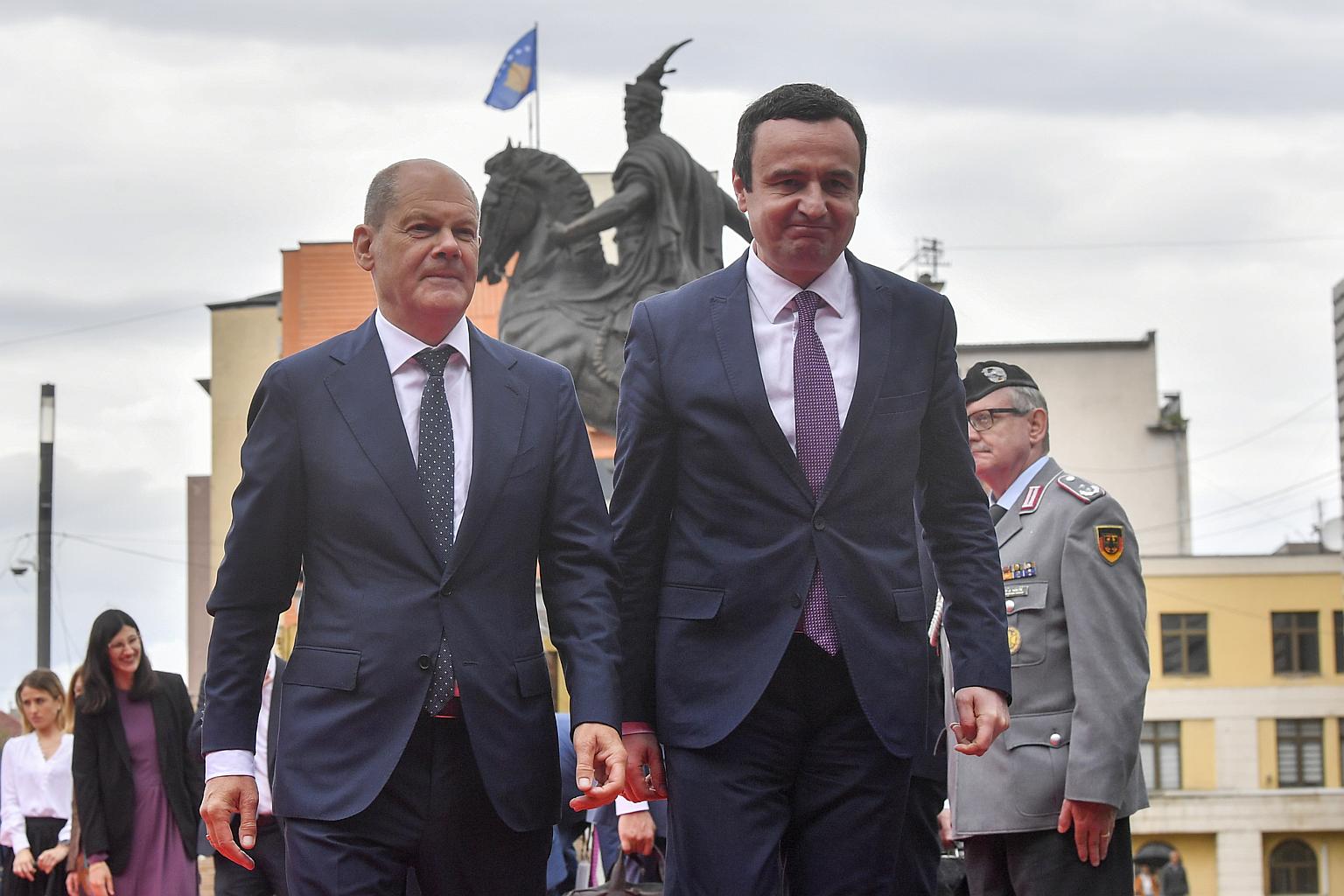Germany's Scholz heads to Western Balkans to help EU membership bids
Sign up now: Get ST's newsletters delivered to your inbox

Kosovo's PM Albin Kurti (right) welcomes German Chancellor Olaf Scholz to Pristina, Kosovo, on June 10, 2022.
PHOTO: EPA-EFE
BERLIN (REUTERS) - German Chancellor Olaf Scholz sets off on a two-day tour of the Western Balkans on Friday (June 10) in a bid to help reinvigorate their long-stalled campaign for European Union membership, ease regional tensions and fend off the influence of rival powers such as Russia.
Russia's invasion of Ukraine has lent a new sense of urgency to the need to tie Montenegro, Serbia, Albania, North Macedonia, Bosnia and Herzegovina and Kosovo closer to the 27-member EU, whether through full membership or an alternative community.
Scholz's visit comes hot on the heels of that of European Council President Charles Michel and ahead of an EU-Western Balkans leaders' summit on June 23.
The prospect of EU membership had for years been the main driver of reform and greater cooperation in the region after a decade of war and upheaval in the 1990s, until EU expansion stalled, spawning disillusionment.
Unresolved conflicts there have given rise to new tensions lately, such as the pro-Russian Bosnian Serbs' secession plans.
"The fact it hasn't happened is a real problem and the growing influence of other countries like Russia and China is a result of this process not developing," said Florian Bieber, a Balkan expert at Austria's University of Graz.
Foreign policy priority
Scholz's government, which took office in December, has made the Western Balkans' EU accession a foreign policy priority.
"We will not surrender this region in the heart of Europe to Moscow's influence," said German Foreign Minister Annalena Baerbock when she paid a visit there in March.
The question is whether the new government is able to come up with a real strategy to push the process forward or whether it will simply "muddle along" like former Chancellor Angela Merkel, who professed her support for the region but did little to change the dynamics, said Bieber.
Scholz will visit first Kosovo and then Serbia on Friday, after meeting with the leaders of both countries last month in Berlin.
Russian Foreign Minister Sergei Lavrov had also been set to visit Serbia, which is trying to balance its EU aspirations with its centuries-old alliance with the Kremlin, this week. But his visit was cancelled when nearby countries closed their airspace.
The German chancellor is set to travel later to Thessaloniki in Greece for dinner with representatives of the South East European Cooperation Process (SEECP), a 12-country Balkan regional body.
On Saturday, he travels on to North Macedonia and Bulgaria, which are locked in a dispute preventing the start of accession talks for the former country.


